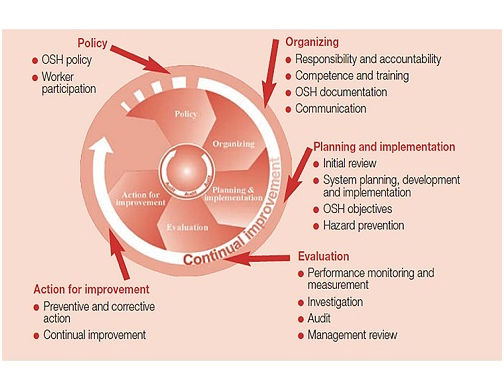Connecting Safety, Health & Wellbeing. An integrated approach to Occupational Health.
The workplace has a significant impact on people's health and wellbeing. As such, employee wellbeing goes far beyond just minimising health issues and health-related absences. A healthy and happy workforce tends to be more engaged and more productive and is essential in building a successful business. Promoting health and wellbeing at work can help create such a positive working environment and helps your employees be successful not only at work – but also in their private lives.1
How do we define Health and Wellbeing?
Health and wellbeing can be described as the achievement and maintenance of physical fitness and mental stability. There is a two-way relationship between wellbeing and health: health influences wellbeing and wellbeing itself influences health. Generally, both physical health and mental health can influence wellbeing
The World Health Organisation (WHO) defines “mental health” as a state of wellbeing in which every individual realises his or her own potential, can cope with the normal stresses of life, can work productively and fruitfully and is able to make a contribution to her or his community. On the other side “wellbeing” (according to the Oxford Dictionary) is the state of being comfortable, healthy or happy.
Bringing those two together, the overall sense of wellness will not be achieved without having a balance in these key elements:
- Physical; including lifestyle choices that affect the functioning of our bodies. What we eat and how active we are will affect our physical wellbeing.
- Emotional or psychological; this is our ability to cope with everyday life and reflects how we think and feel about ourselves.
- Social; the extent that we feel a sense of belonging and social inclusion. The way we communicate with others, our relationships, values, beliefs, lifestyles and traditions are all important factors of social wellbeing.
- Spiritual; the ability to experience and integrate meaning and purpose in life. Achieved through being connected to our inner self, to nature or even a greater power.
- Intellectual; it is important to gain and maintain intellectual wellness as it helps us to expand our knowledge and skills in order to live an enjoyable and successful life.
- Economic; in short, economic wellness is our ability to meet our basic needs and feel a sense of security.
Why is Health and Wellbeing important?
Mental health is essential to the overall wellbeing and is as important as physical health. When individuals feel mentally well, they can work productively, enjoy free time, and contribute actively to communities.
Improved health and wellbeing (physical and mental) is important and beneficial for the following reasons:
- Improved immune system response.
- Individuals gets a higher pain tolerance.
- Slows progression of diseases e,g. coronary heart disease and cancer.
- Increases life expectancy.
- Is associated with positive health behaviours and good lifestyle choices
- Is associated with broader positive outcomes and increased productivity.
- Influences the wellbeing and mental health of those close to us
- Reduction in sickness absences or presenteeism at work.
How can Employers support Health and Wellbeing?
Employers partner with Occupational Health providers who can support a broad variation of health and wellbeing services to ensure employees are kept healthy and safe – both physically and mentally. The provision of Occupational Health Services usually includes employee education and support. E.g. wellbeing days and health promotion or group sessions on various health and wellbeing topics. In addition, wellbeing services like Counselling services, Cognitive Behaviour Therapy (CBT) and Physiotherapy etc can be provided. Other support services may include sickness absence management, medical referrals and medical surveillance.



